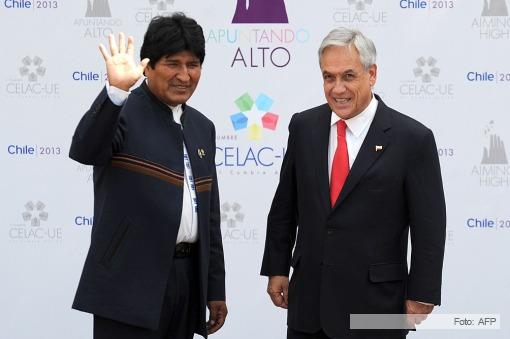The case against Chile is for noncompliance with the 1904 Treaty of Peace and Friendship. The Bolivian government is seeking to recover access to the Pacific ocean that was lost in the 1879 war.
The government and congress of Bolivia are lodging a case in the International Court of Justice in The Hague against Chile for noncompliance with the 1904 Treaty of Peace and Friendship, announced parliamentarians of the ruling Movement to Socialism, the political party of President Evo Morales.
The Bolivian Chamber of Deputies, in a restricted session held over the last two days, analysed the “Bogota Pact”, a document in force since 1948.
Bolivia will announce her withdrawal from the restriction of article six of the “Pact of Peaceful Solutions to Controversies” indicated Deputy Wilmar Cardozo, as quoted by DPA.
Withdrawal from the restriction of the controversial article will enable Bolivia to present an international case against Chile to review and modify the 1904 treaty, the former Foreign Minister expects.
“The article observed by Bolivia indicates that matters already resolved by agreement of the parties, either through arbitration, through the decision of an international court , or through agreements or treaties in force at the date of the Pact are not subject to the Pact,” recalled Loaiza.
There is a way out
Four years ago, the government of Evo Morales put in place a new Constitution that authorises modification of several treaties and international agreements until December.
Two years ago, Bolivia started to study the 1904 treaty and probably tomorrow, on the Day of the Sea, will annouce the launch of an international case against Chile in order to obtain a sovereign exit to the sea with geographic continuity, the former minister annouced.
Last Wednesday, Loaiza participated in a restricted meeting with Evo Morales and five former leaders and six former foreign ministers where it was reported that the Plurinational Legislative Assembly of Bolivia will lift the restriction of article six of the Bogota Pact, signed by Bolivia in 1948 and ratified in 2011.
“To lift the restriction of article six will facilitate the hearing of Bolivia’s case in the International Court of Justice in The Hague and Chile will not be able to raise objections of competence,” Loaiza explained to journalists.






